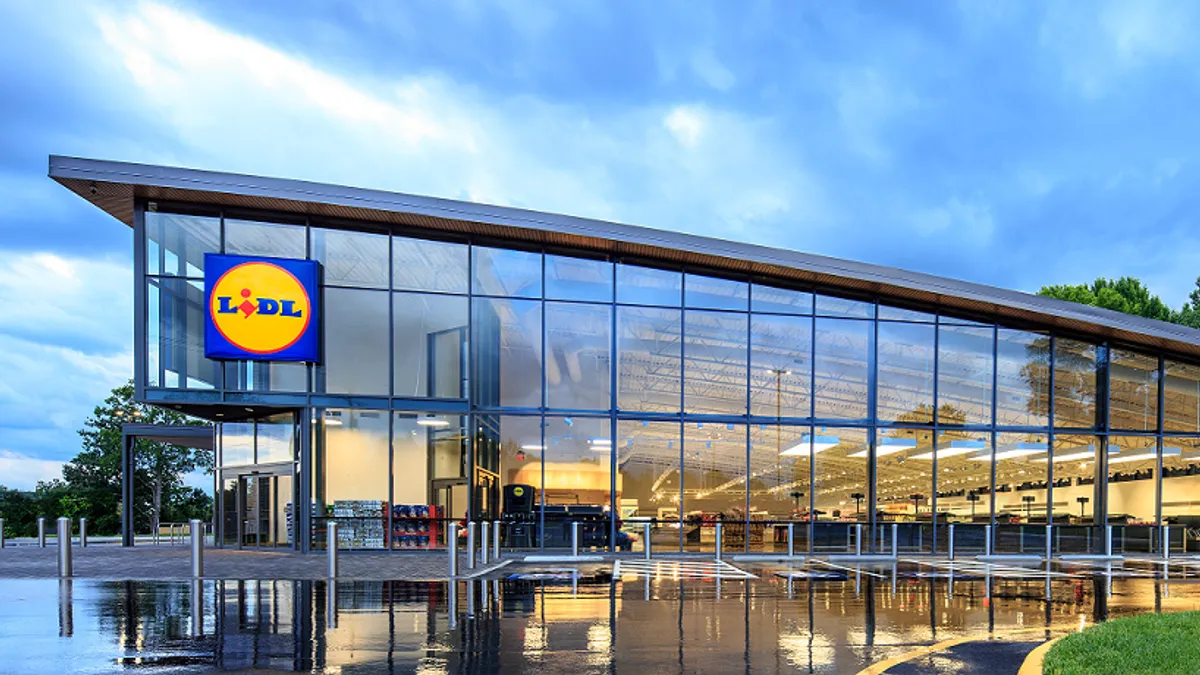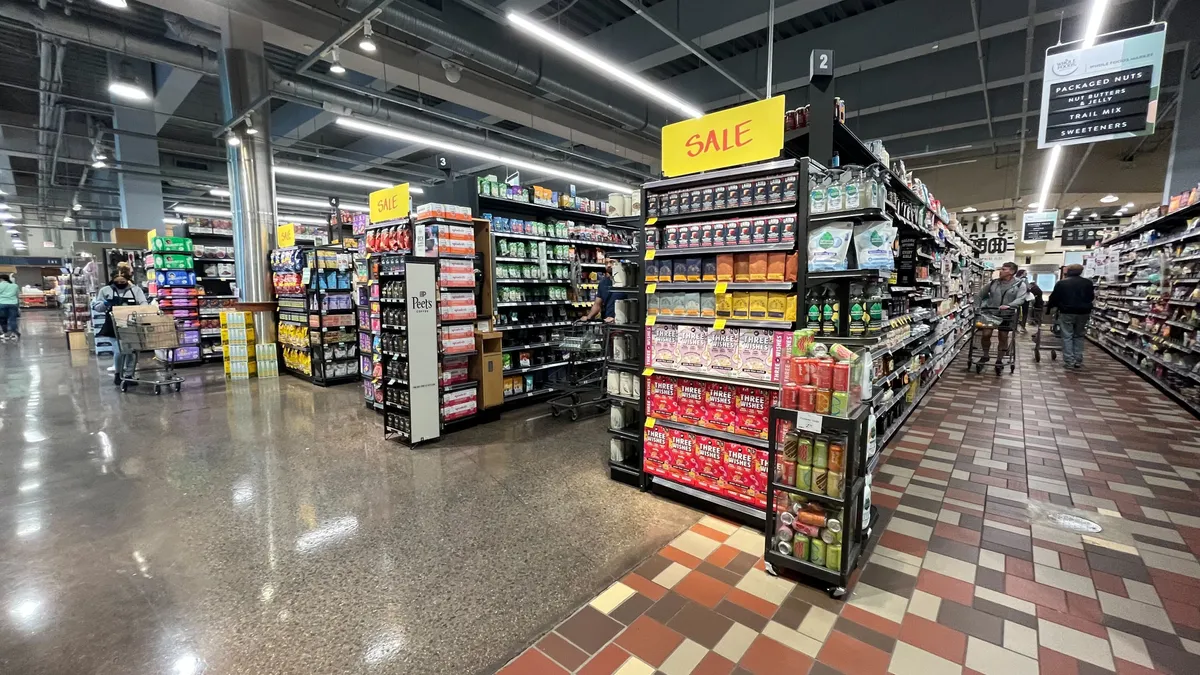Dive Brief:
- Lidl has halted construction on its second New Jersey store, in Mantua Township, due to “budgetary constraints,” according to NJ.com. The discounter opened its first Garden State store last month, in Vineland.
- Lidl has hit the brakes on several other store locations up and down the East Coast, according to reports. This includes sites in Staunton, Virginia; East Lampeter Township, Pennsylvania; and Austintown Township, Ohio. The chain has also scaled back its expansion plans in Georgia, according to a report in the Atlanta Business Chronicle in October. A real estate source in Virginia said a decreasing focus on small markets was the reason Lidl was not moving forward with its Staunton site, according to the News Leader.
- Data from inMarket shows that Lidl’s store traffic tapered off following a strong debut in June, while a study from management consulting firm Oliver Wyman found shoppers are very enthusiastic about the concept once they begin shopping the stores. Lidl spokesman Will Harwood told NJ.com the company is making “really good progress” on its expansion, though declined to comment on the Mantua Township stoppage.
Dive Insight:
Industry observers have been critical of Lidl’s real estate plan since before the discounter even began opening stores. In a recent interview with Food Dive, Jeffrey Metzger, publisher of the industry journal Food World — which focuses on the Mid Atlantic grocery market — said the company has been “all over the place” with its store selection.
According to him, the only consistent criteria seems to be the stores' proximity to Walmart and Aldi locations.
“In some areas they’re not on Main Street — they’re not even on outer Main Street,” he said.
News of Lidl’s pullback is worrying for the company, and a sign that its plan to disrupt the U.S. grocery industry isn’t going as it had hoped. It could also be a sign that the discounter is shifting its real estate strategy.
Although Lidl has declined to cite specific reasons to the media, a real estate developer in Virginia told the News Leader that company officials said a shift in focus away from “smaller markets” was the reason for canceling a store in the town of Staunton. According to Census data, Staunton has an estimated population of 24,363.
If this shift is indeed underway, it means Lidl is focusing on larger, more promising markets. These regions, of course, carry the allure of high customer traffic and an affluent clientele, but they’re also more competitive, which could be a problem for the retailer.
Although it came to the U.S. promising to “Rethink Grocery,” Lidl isn’t looking quite so revolutionary as it struggles to stand out on key its key differentiators — price and private label — according to industry analysts. Some say Lidl is too focused on its nonfoods selection, while others cite a lack of emphasis on its fresh products. Multiple sources have told Food Dive Lidl’s stores are too big, especially when compared to Aldi locations.
But the discounter still has time to right the ship. A better real estate plan could improve overall store volumes. Plus, the Oliver Wyman study indicated shoppers are loyal to the format once they overcome their initial hesitation. If Lidl can improve its assortment, it increases its chances of converting curious shoppers into regular customers.










